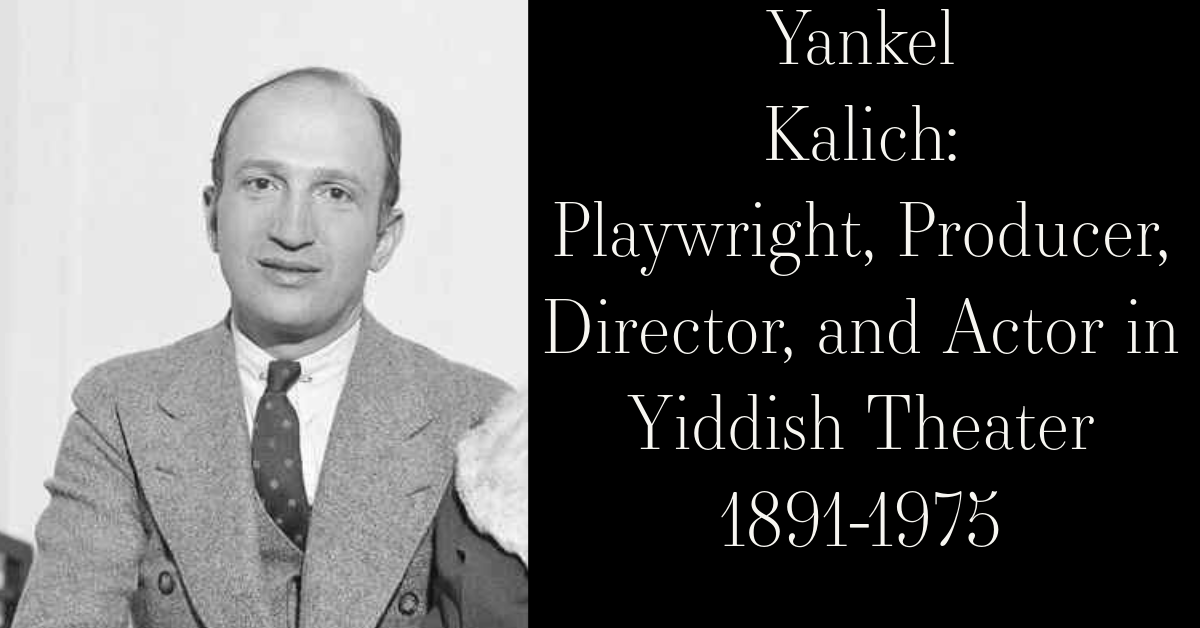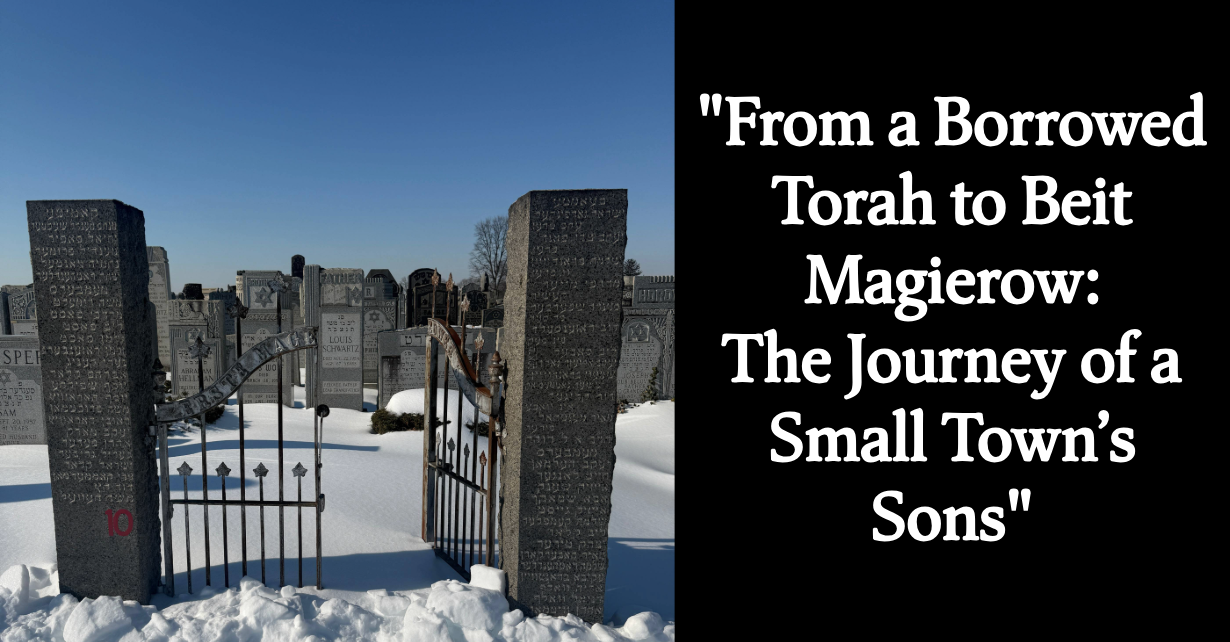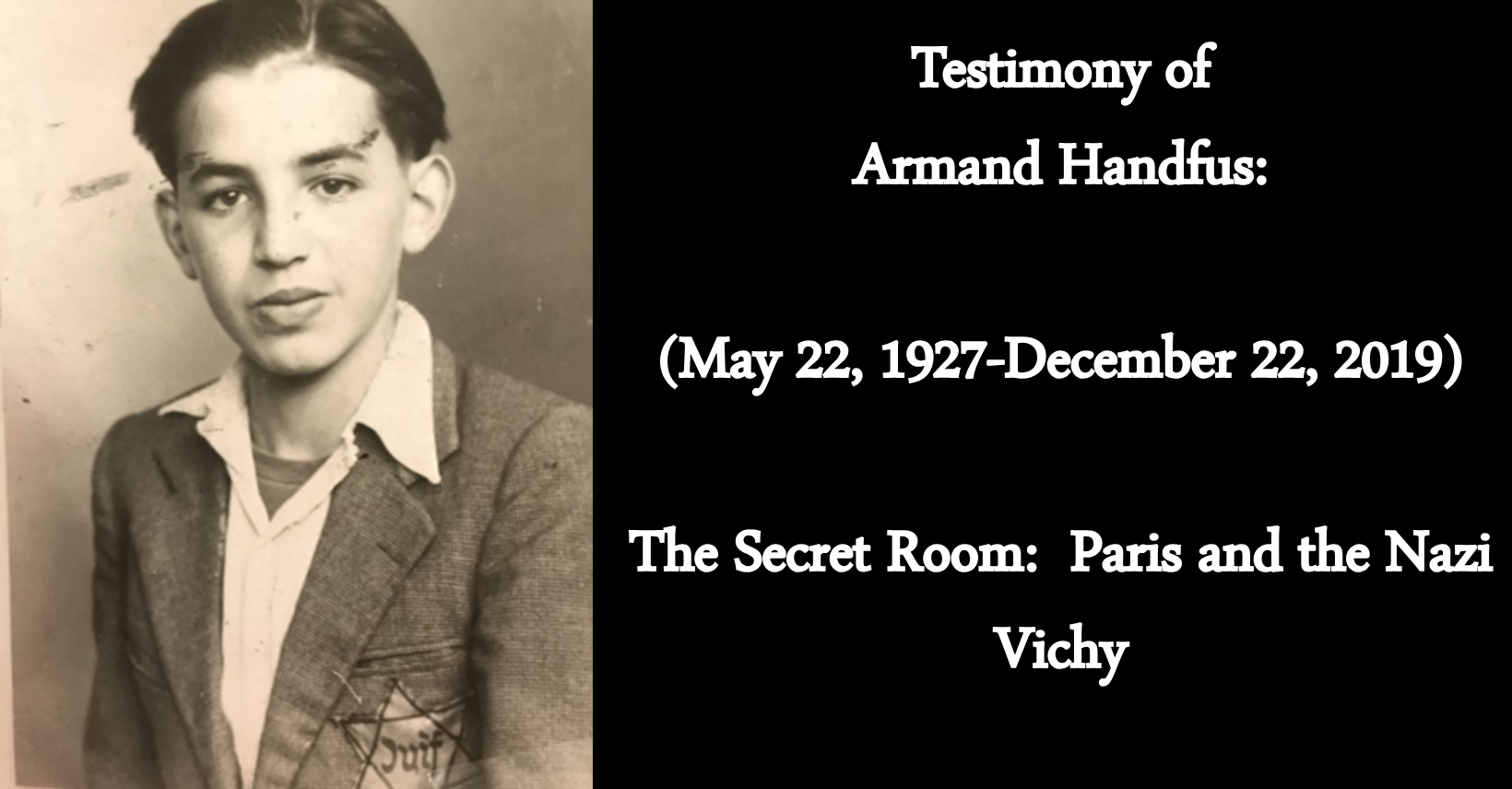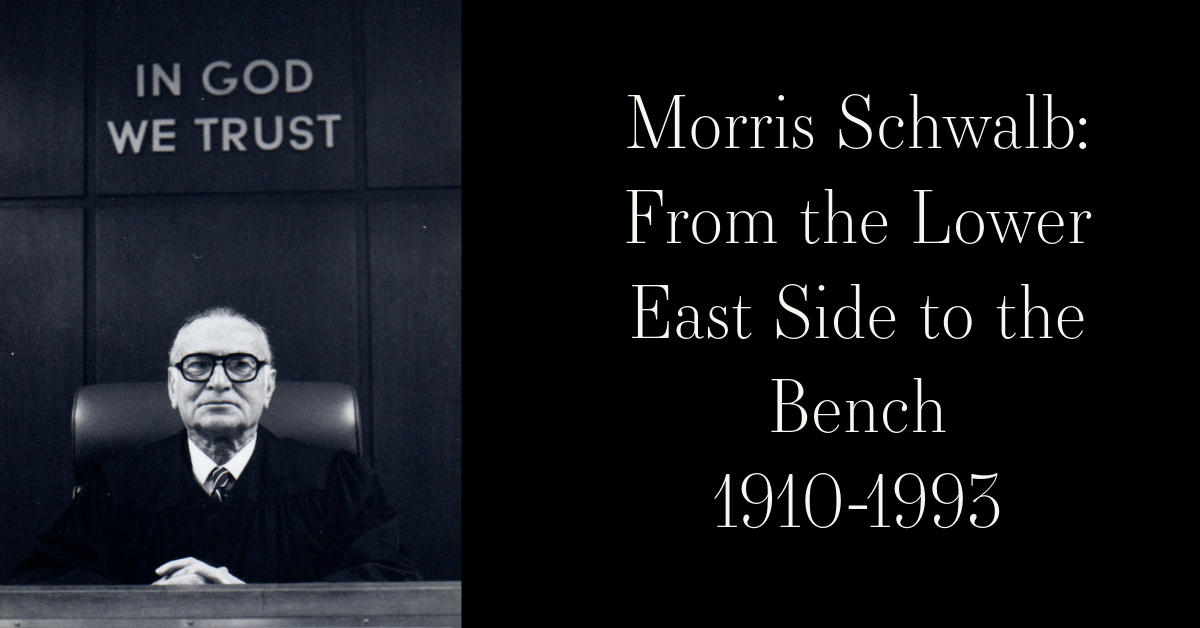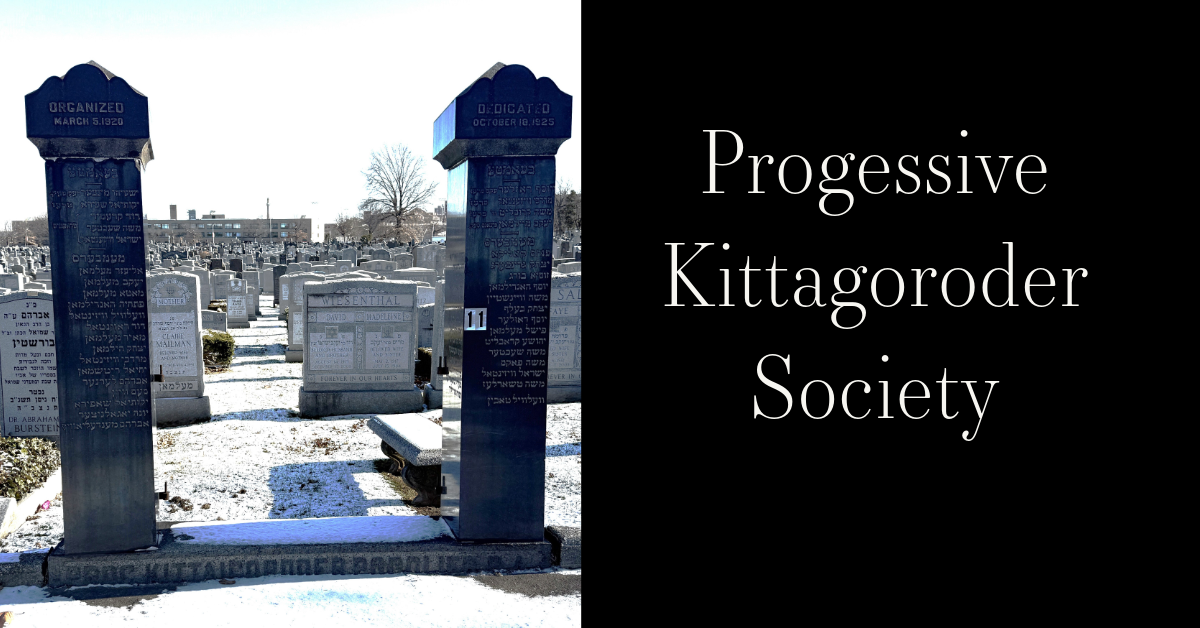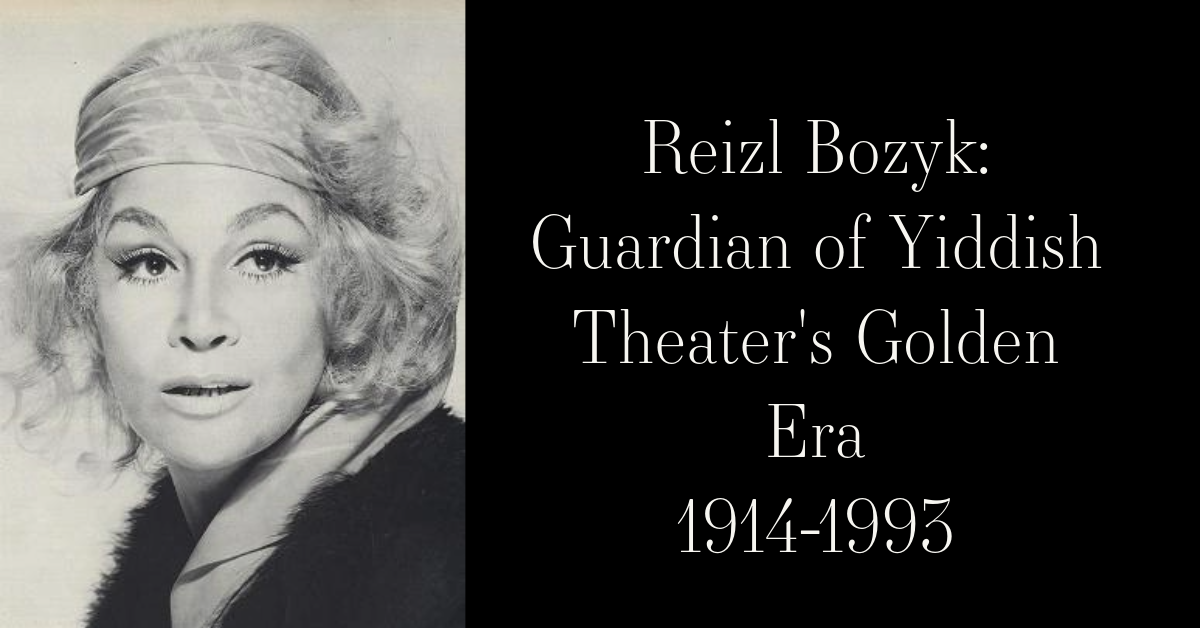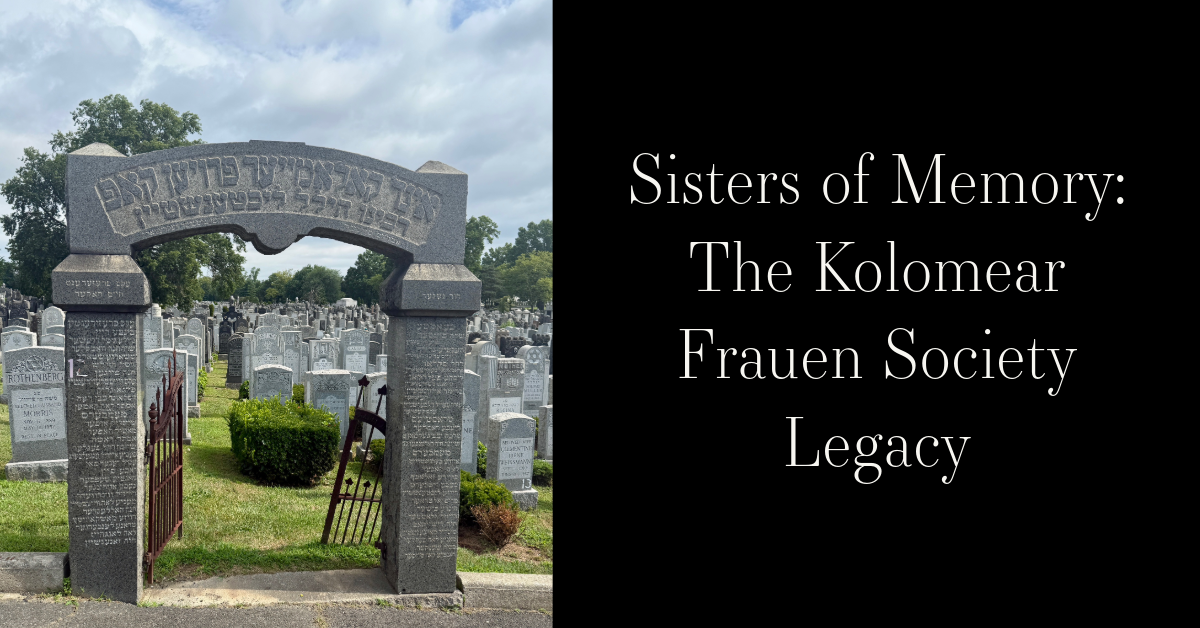Yankel (AKA Jacob) Kalich
Playwright, Producer, Director, and Actor in Yiddish Theater
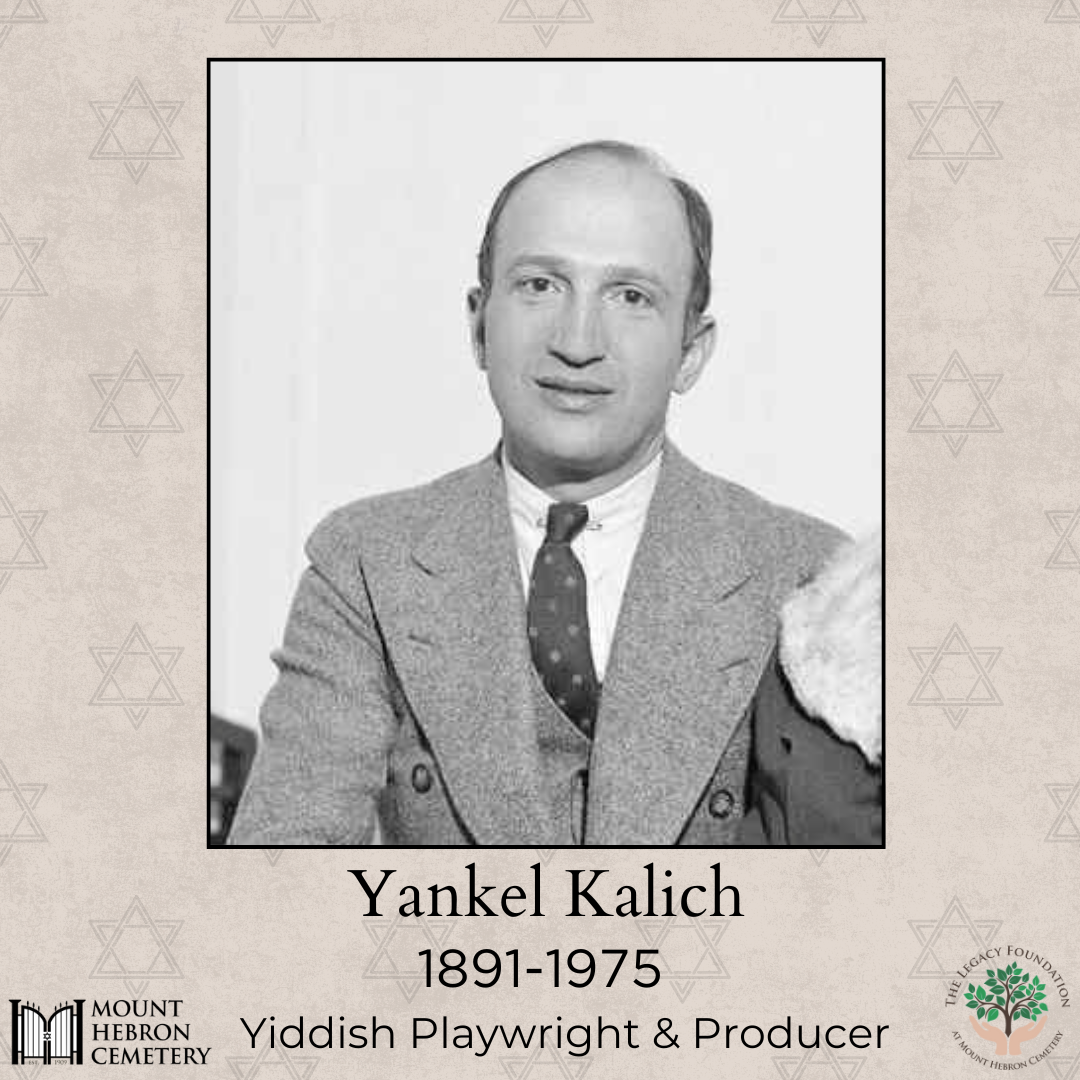
Yankel Kalich was born in November 1891 in Rimanov, Galicia to Gershon and Miriam Kalich. He was descended from a long list of rabbis and in his youth, Yankel attended rabbinical schools in Poland, Rumania, Hungary and Austria. Yankel was raised in the house of the Rimanov rebbe and also learned with the Buhusi rabbi. For all intents and purposes, Yankel appeared to be a diligent Torah scholar. However, Yankel was leading a double life since he was clandestinely pouring through secular material which would be viewed as tabu in the Chassidic community. This reading material caused a radical change in Yankel’s belief systems and ultimately resulted in Yankel’s withdrawal from Chasidism and his transition to irreligiosity. Yankel became disinterested in Torah and Orthodoxy and instead gravitated toward Zionistic ideologies and Yiddish literature.
Although Yankel was moving away from Orthodox Judaism, he continued to dress the part. Yankel’s “rabbinic” attire ironically paved his way to the stage. There was a Yiddish theatrical troupe, passing through Rymanov, Poland. The performers were in need of a costume such as Yankel wore. Therefore, they borrowed Yankel’s “costume” as well as its owner. With this troupe, Yankel played a wide variety of parts from juvenile leads to old men and he and the troupe performed in other countries including Bucharest and London.
Yankel relocated from Buhusi to Bucharest where he focused his attention on Yiddish theater as an artist, director, writer and adaptor of plays. Yankel began his career as a playwright and wrote the following four plays: The Simpleton, the Butcher, The Synagogue Beadle and the Lord’s Judgement. In 1912 he joined the troupe of M. Segalesco and he wrote a four-act drama called "Der tam (The Naive)," with Albert Segalesco and Janet Paskewitch performing the two leads.
In 1914, Yankel immigrated to the United States where he found a job managing Yiddish theaters. He also published Hassidic sketches, novellas, travel narratives, articles and poems in American publications as well as in Canada and Poland. Yankel reworked and somewhat revised other author’s plays including Goldfadden, Shomer (Nokhum-Meyer Shaykevitsh, Latenier, Anshl Shor, V Sigal , N. Rakov and L. Freyman). Kalich also wrote “A Children’s Play,” which was translated into several languages. Yankel eventually opened up his own theater in Philadelphia.
From 1918 to 1920, Yankel and an actress named Dina Feinman managed the Grand Opera House in Boston. An influenza epidemic began which resulted in the closure of all theaters, (except Yiddish theaters- due to an oversight). Molly Picon was a young woman who had been on the Vaudeville circuit. Due to the epidemic, she found herself stranded in Boston. Molly arrived at the Grand Opera House in search of employment. Yankel had been looking to hire a “lively ingenue.” Yankel hired Molly as a substitute but when she became a hit, Yankel immediately hired her. After Molly had been working for Yankel for a year, Yankel decided he wanted Molly to be his wife. He began proposing to her each day in five different languages as well as broken English. When Molly accepted, Kalich announced their engagement on stage.

On June 29, 1919. Yankel married Molly Picon in the back of a Philadelphia grocery store. Yankel and Molly continued to appear in concert tours in the United States and other countries. Yankel also served as Molly’s manager for her New York shows. He also began to produce and direct many productions that Molly was starring in including a biographical piece about Picon called, Oy is Dus a Leben. Yankel and Molly appeared in concert tours in the United States and other countries. Molly had a still born birth on 8/13/20 after which time she developed Pelvic disease. Yankel and Molly were never able to have children.
Right after their marriage, in 1920 they went on a 36-month tour of Europe. Molly and Yankel performed in Yiddish theater productions in Europe post WWII. Yankel directed and acted with Molly in Paris, Bucharest, Warsaw and Vienna. According to Molly, the couple did shows “anywhere they could find an audience of survivors.” They performed in a concert for the benefit of the poor children of Vienna, put on a concert in Karlsbad, went on a concert tour across the Czech Republic and Moravia, and then returned to Vienna.
In January 1921 Jacob and Molly continued with a concert tour across Czechoslovakia, then in Lodz, where Jacob put on "Tsipke fayer” and Yankele" in Warsaw. Yankel gave Molly the lead role in “Yankele.” This play was Yankel’s most famous and most frequently staged play. They continued performing across the larger cities of Poland with a concert program, later in Romania, where Jacob put on "Hopsasa" and 'A Sensible Girl," continuing with concerts in Paris and London, and in November 1923 they returned to America.
Molly recalled her first meeting with Yankel, saying “Yankel was the complete intellectual who knew not only classic Yiddish but it’s plays, theater, and writers.” On their return to New York in 1923, Mr. Kalich directed and appeared in productions at the Second Avenue Theater including “Gypsy Girl,” and he directed “Little Devil,” “Hello Molly” and “Little Mother.”
On television Yankel played the title role in “The Education of Hymie Kaplan” for Studio One on CBS. He also wrote one-acters for amateur groups and was active with theatres in Botosani and Czernowitz. Later Yankel was a manager for theatre director Joseph Kessler
In the 1924-25 season Yankel put on musical plays such as "Shmendrick's Wedding" per Goldfaden (music by Rumshinsky and Goldfaden), his montage of Goldfaden's and Shomer's play, called "The First and Second Haman," and his adaptation of Joseph Lateiner's "The Gypsy Girl." During the 1925-26 season, Yankel performed his adaptation of Anshel Schorr's "Molly Dolly," N. Rakowe's "Katinka," and Gershom Bader's "The Rabbi's Melody." In the 1926-27 season Yankel put on Nager's "The Little Devil," Meyer Schwartz's "Mamele," M. Osherowitz's "The Little Czar." In the 1927-28 season, Yankel put on Chone Gottesfeld's "Raizele," Kalmanowitz's "Some Girl" and Joseph Lateiner's "Good Luck." In the 1928-29 season Yankel staged "The Circus Girl" by the Shomer Sisters, Shein Rukhl Simkoff's "Hello, Molly," and his own musical revue, "Second Avenue Follies." During the 1929-30 season, Yankel staged Freiman's "The Radio Girl," William Siegel's "The Jolly Orphan," and Joseph Lateiner's and William Siegel's "The Little Clown."
In the summer of 1931 Jacob and Molly, went on another concert tour across the United States, then across Karlsbad, Romania, Austria and Czechoslovakia. In the winter of 1932, they both went on a concert tour across the United States. In 1933, they visited Israel, Russia and several Polish cities.

In the 1934-35 season, Yankel staged “Here Runs the Bride,” in the Second Avenue Theatre, "One in a Million" by Anshel Schorr and William Siegel, "Motel Peissi, the Cantor's Kid" by Sholem Aleichem, and then "What Girls Do" by William Siegel.
In 1937, Yankel and Molly performed in concerts and on radio programs and visited South Africa. Upon his return, Jacob staged "My Malkele" by William Siegel at the Public Theater. In 1942, Jacob put on his operetta, "What a Life!" (a biographical operetta of Molly's life) in Philadelphia and in New York.
In 1943-45, Jacob and Molly performed in concerts when they traveled to the American military camps, hospitals and convalescent homes. In 1946 they performed in the orphanages in Poland, the Czech Republic, and Germany, where they gave free concerts for six months. In 1948 they again visited Africa and performed in Johannesburg, Cape town and Durban. In 1951 Yankel performed for the American soldiers in Japan. The American Government bestowed awards on Yankel and he was bestowed with the title of Captain in the army.
In 1955 Yankel visited Israel as a guest of the "Israel Bonds." Yankel was requested to sell bonds in the sum of 25 million dollars in the United States and Canada from 1952 to 1955. In 1958 Yankel performed the main male role in the operetta, "The Lost Honeymoon." Yankel and Molly adopted three children named Meira, Dov and George.
For one year Yankel put on the air a Yiddish radio program in New York under the name, "Der briv-kastn (The Mail Box?)." Yankel also put on two spectacles in a play in Madison Square Garden called "Queen Esther” (an Akhashveyresh play in the "Mecca Temple)," with Yiddish writers as actors and a cantorial festival with three hundred cantors in the "Mecca Temple.
In 1959 Jacob played in English the main role from the dramatized book "The Education of Hyman Kaplan" on television, and "The Littlest Little Leaguer," as well as other television programs. Jacob had roles in the following Television shows: Dr. Kildare, Car 54: Where are you, Naked City, New York Confidential, The Alcoa Hour, Studio One and Ost und West. Artistic Manager in Mamale and the Artistic Creative Consultant in Yidl Mitn Fidl.
Yankel was an Executive Member of the Yiddish Actors' Union, and also its president. He was also was the treasurer of the committee of the "Lexicon of the Yiddish Theatre.".
Molly and Yankel lived on a 12-acre farm in Mahopac, N.Y. Yankel and Molly resided with Molly’s mother and sister in an apartment near 2nd Avenue. The Kalich family was weathy since Kalich was part owner of Kesslers Theater. Yankel and Molly generated additional income when Yankel received royalties from books and plays, he has written and Molly got royalties from records she made.
After a life producing, directing, writing and acting in Yiddish theater productions in the United States and abroad, Yankel died of cancer at his home at Lake Mahopac, N.Y. He was 83 years old. Yankel was buried in the Yiddish Theater section of Mount Hebron Cemetery in Flushing, New York alongside his wife, Molly Picon.
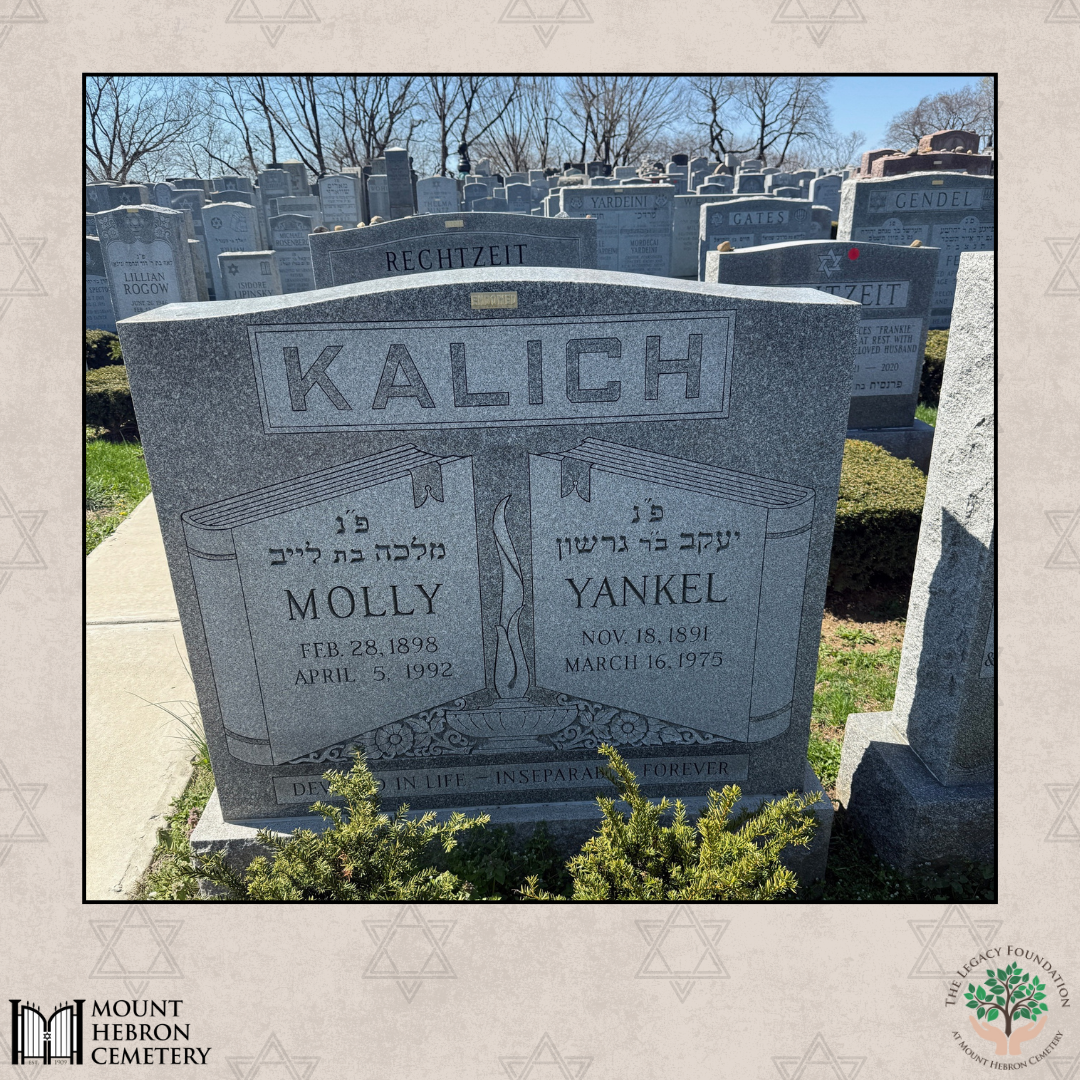
Blog by Renee Meyers


